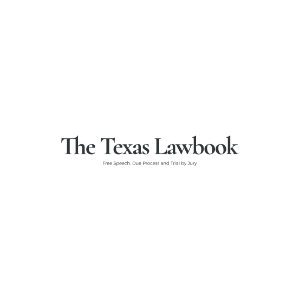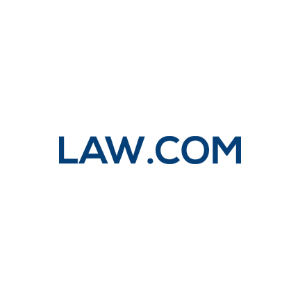Cardiothoracic (CT) surgery is surgery performed on the heart, lungs, esophagus, or other structures within the chest or throat. When successful, CT surgery can treat conditions ranging from congestive heart failure, to blocked arteries, to lung cancer. However, a mistake during surgery can be catastrophic for the patient. When a cardiothoracic surgeon’s errors cause a patient’s death or injury, the victim or their surviving family members can potentially file a lawsuit under Texas regulations.
Suing your surgeon for medical malpractice is a complex procedure that requires you to have a detailed understanding of the law. At The Queenan Law Firm, P.C., we bring more than 20 years of experience to your case, ensuring that you receive a thorough and sophisticated investigation into your injuries. Contact Queenan Law online to arrange a free legal consultation, or call (817) 476-1797 for 24-hour assistance with your surgical error claim in Dallas.
Types of Procedures Cardiothoracic Surgeons Perform
Cardiothoracic surgeons operate on organs and arteries of the chest and throat. Types of medical procedures that a CT surgeon might perform include:
- Angioplasties
- Ablations
- Coronary artery bypass grafting (CABG)
- Heart transplants
- Heart valve replacements or repairs
- Implantation of medical devices (such as pacemakers)
- Open heart surgeries
- Stent placements
- Surgeries on the carotid artery
What Conditions Does CT Surgery Treat?
Cardiothoracic surgery is used to treat a variety of medical conditions affecting the heart, lungs, trachea (windpipe), and esophagus. Depending on the situation, medical conditions that may be treated or improved with CT surgery include:
- Atrial fibrillation
- Certain aortic aneurysms
- Congestive heart failure
- Coronary artery disease (arterial blockage)
- Esophageal cancer
- Lung cancer
- Myocardial infarction (heart attack)
- Tracheobronchial cancer
- Valvular stenosis
Risks and Complications of CT Surgery
Not all patients are suitable candidates for CT surgery, which can be risky and invasive. It is part of a doctor’s duties to analyze the patient’s medical history and determine whether the benefits of CT surgery outweigh the risks. Healthcare providers should also discuss potential risks and complications in depth with their patients, while also providing information about other available treatments.
Failure to warn patients about the risks of CT surgery may constitute malpractice. If your Dallas CT doctor or surgeon failed to warn you about potential risks and effects of a procedure, you may have a claim. Potential risks of cardiothoracic surgery include heart failure, kidney failure, severe infections, severe bleeding (hemorrhaging), and death.
Suing a CT Surgeon for Errors in Dallas, TX
The answer to this question depends on a complex array of factors. You may have a case against your cardiothoracic surgeon, the hospital where you were treated, or other parties if you suffered an injury or illness due to careless, negligent surgical errors.
It’s understood that major surgery carries with it some level of risk. Surgical teams are required to manage that risk by meeting certain standards of care. For example, any reasonable person would expect surgical instruments to be properly sterilized, which is just one of the many duties a surgeon has to their patient.
If a surgeon fails to meet reasonable standards, and this deviation results in a patient’s death or injury, the victim or victim’s family may have a medical malpractice case. For example, if a patient suffers heart failure because the surgeon cuts too deeply, uses an improper technique, or delays a procedure without valid medical cause, it may constitute malpractice.
Examples of Cardiothoracic Surgery Errors
Cardiothoracic surgeries are often immensely intricate procedures. There are countless opportunities for error, any one of which could be devastating for the patient. Examples of cardiothoracic surgery errors that may result from negligence include:
- Accidentally leaving objects inside of the patient (such as sponges or pieces of gauze)
- Anesthesia errors or medication errors related to CT surgery
- Failure to monitor patients during surgery
- Failure to provide proper postoperative care and follow-up evaluation
- Improper sterilization of equipment or the operating room
- Improper use of medical instruments
- Operating on the wrong part of the body (such as operating on the wrong lung)
- Unjustified delays in performing surgery (or, on the other hand, rushing into a surgery before there is a medical need)
Damages Available in a Medical Malpractice Lawsuit in Dallas, Texas
“Damages” is another term for financial compensation. Different types of damages may be available in a Texas surgical error lawsuit, including the following:
- Economic Damages – Economic damages compensate out-of-pocket financial losses, such as medical bills and lost wages resulting from your injury or illness.
- Non-Economic Damages – Non-economic damages try to compensate the victim’s pain and suffering. While there is no objective way to ever translate pain into a dollar amount, courts try to consider a wide range of factors when determining an amount.
- Punitive Damages – Punitive damages are only awarded in cases where the defendant acted maliciously, recklessly, or wantonly. It is more common for economic and non-economic damages to be awarded.
Call Our CT Surgical Error Lawyers in Dallas, TX
At The Queenan Law Firm, P.C., we have established a reputation for delivering compassionate, strategy-driven legal representation. Our Dallas surgery error attorneys have a proven track record in the area of medical malpractice, because we know how to approach and resolve these challenging cases effectively. Contact us online today to arrange a free legal consultation, or call Queenan Law at (817) 476-1797.






